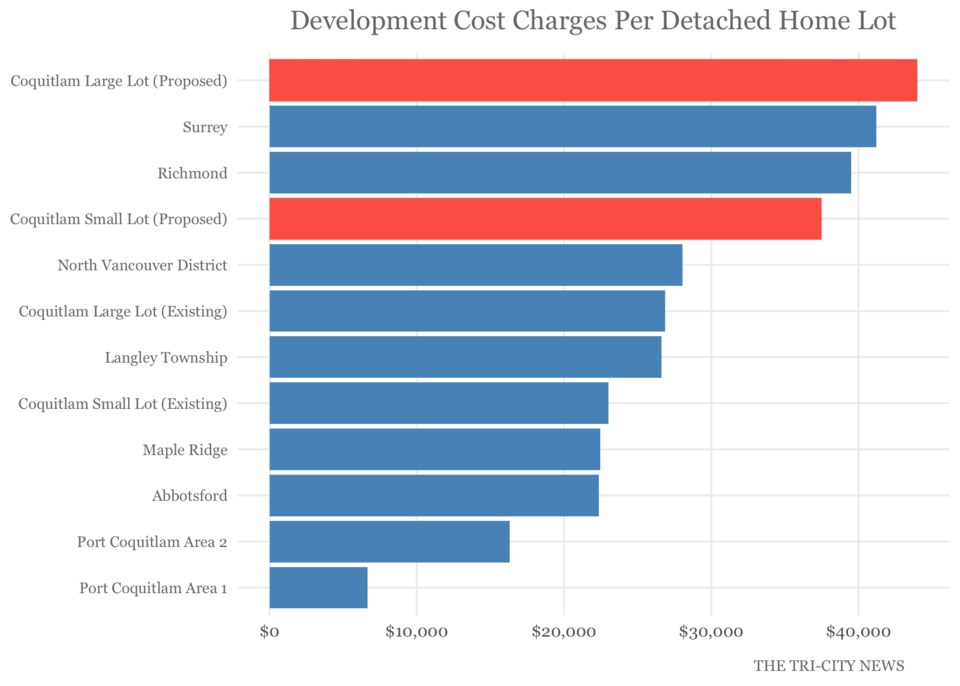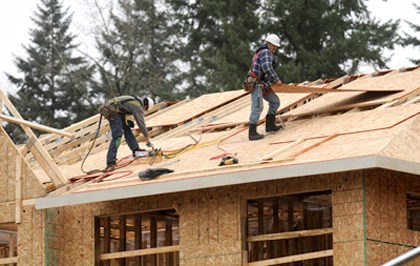The cost developers pay to build in Coquitlam could be going up.
The city is proposing an across-the-board increase in development cost charges (DCC), which are collected by municipalities to recoup expenses associated with servicing new projects.
Michelle Hunt, Coquitlam’s general manager of finance and technology, told The Tri-City News the proposed jump in fees is necessary to offset the rising land and building costs associated with park acquisition and utility construction.
“The rates get calculated based on population and where we think that growth will reside,” she said. “We have seen a big shift. That is reflected in those growth calculations.”

DCCs for detached homes are expected to see the largest increases, with a proposed rise of 64% for large lots (more than 375 sq. m) and 63% for small lots. If the new rates are adopted, it will make Coquitlam’s fee one of the most expensive in the region.
The development cost charges for townhouses would also rise from $123 per sq. m to $178 per sq. m (46%) while those for apartments would jump from $123 per sq. m to $183 per sq. m (48%). DCCs would rise 24% for commercial property and 18% for industrial.
The fees are provincially mandated and are collected by municipal governments to pay for the costs associated with new development. For example, as new multi-family projects are built, funds are needed to expand the city’s park and green space network for the increasing population. The money is also required to pay for utility hookups associated with the new developments.
A public consultation process began last week and the city has been consulting with the Urban Development Institute (UDI), a development industry group, on the changes. City staff will accept input until Dec. 7.
While developers may not be thrilled with the prospect of seeing their costs rise, Hunt said most stakeholders have been understanding.
“Our costs and our programs are driven by the cost of land and construction,” Hunt said. “The development industry is well aware of that. They are experiencing the same thing.”
She added that the city has committed to revisiting the charges every two years. That means that a slow down in the housing market could be reflected in future rate increases, Hunt said.
After consulting with the industry, city staff will present the findings to council in the new year. Because development cost charges are legislated under the Local Government Act, the new rate increase will have to be approved by the provincial government. A final bylaw is expected to go to Coquitlam council in the spring.
@gmckennaTC



